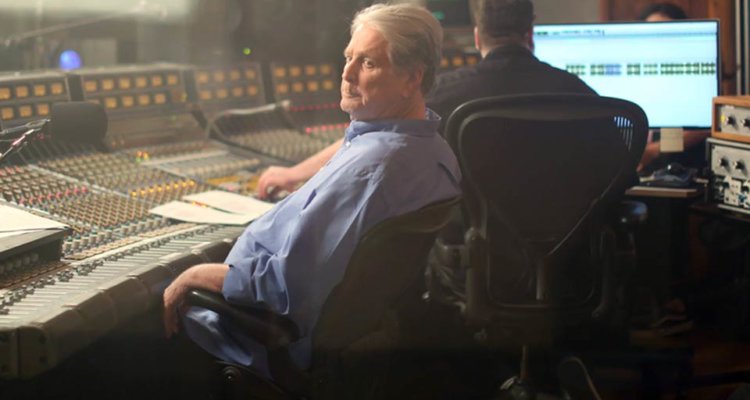Reclaiming Beach Boys co-founder Brian Wilson’s voice and personal narrative, “Brian Wilson: Long Promised Road,” is an insightful but breezy introduction to the musical mastermind. Touching on everything from his early career to Beach Boys success and his drug use and mental illness, Brent Wilson and Jason Fine’s film may not reveal much about Wilson that isn’t covered in a Wikipedia article but still allows the musician to reclaim his own narrative. Cutting between lavish praise from talking heads — Elton John, Springsteen, and Joe Jonas (for some reason), and drives that producer Fine, the Content Director of “Rolling Stone” takes Wilson on, director Brent Wilson (no relation) moves chronologically through most of Brian’s life, honing in on his revolutionary producing skills and his subsequent turn to drugs that exacerbated pre-existing mental illnesses.
READ MORE: 2021 Tribeca Film Festival Preview: 15 Must-See Films To Watch & More
As becomes readily apparent as Brian Wilson talks through his career, he has been diagnosed with manic depression and schizoaffective disorder. Slower to process information, he comes across as a more laid-back figure, quiet and pensive, but still capable of bursts of musical reinvention. Most of the film has Fine taking Wilson through California, including frequent stops at the Beverly Glen Deli, as the musician remembers scenes from his career — creating Pet Sounds, his late-60s productions in his house, and even his contentious psychology treatment by Dr. Eugene Landy (a biographical detail that was also mined in the fictional “Love and Mercy”).
Intercutting archival footage, Brent Wilson traces Brian Wilson’s almost meteoric rise as the Beach Boys took over airwaves in the 1960s. A family affair, including Brian’s brothers Dennis and Carl, and their manager father Murry, Brian emerged as the de facto leader of the band, as he took a more outsize role in production, eventually leading to their father’s exit.
READ MORE: Summer 2021 Preview: Over 50 Movies To Watch
Yet, Brent Wilson and Fine are less interested in unearthing machinations that led to the Beach Boys’ success and subsequent creative and commercial decline. Instead, they are apt to let Wilson slowly work his way through his memories, giving him almost free rein to steer the film – and soundtrack – whichever way he wants. This type of free-associative structure, occasionally interrupted by contextual information, allows viewers inside Wilson’s head to jump from album to album, spanning decades in a sentence. It’s a shaggy organizational method, with Wilson more interested in anecdotally connecting whatever is playing on the car radio with some scene from his life, but it’s never less than fascinating.
By following Wilson around, “Long Promised Road” also includes his most recent recording sessions and concerts. If Wilson is a measured interview subject, he breaks free when making music, proving that he’s still got an ear for producing and a continuing perfectionistic streak. When moving on to discuss his illness and his essential imprisonment under his psychologist/manager/business advisor Landry, Wilson is apt to leave those areas unexplored, as Brent Wilson uses archival newsreels to contextualize Wilson’s life after his overdoses. While these aspects are understandable glossed over by Wilson, the film is a bit too apt to let Wilson guide the discussions.
READ MORE: ‘7 Days’: A Sweet-Natured & Empathetic Rom-Com For The COVID Era [Tribeca Review]
“Long Promised Road” doesn’t reveal much about Brian Wilson that wasn’t already known; the film nevertheless humanizes the figure, allowing the artist to reclaim his own narrative and showcase how his artistry continues into the present. While occasionally dipping into adulation, especially when Fine gently probes Wilson to speak about some aspect of his life, the film is an excellent primer for deeper dives into Wilson’s life and a lighthearted hang with a musical legend. [B]
Follow along with all our 2021 Tribeca Film Festival coverage here.

